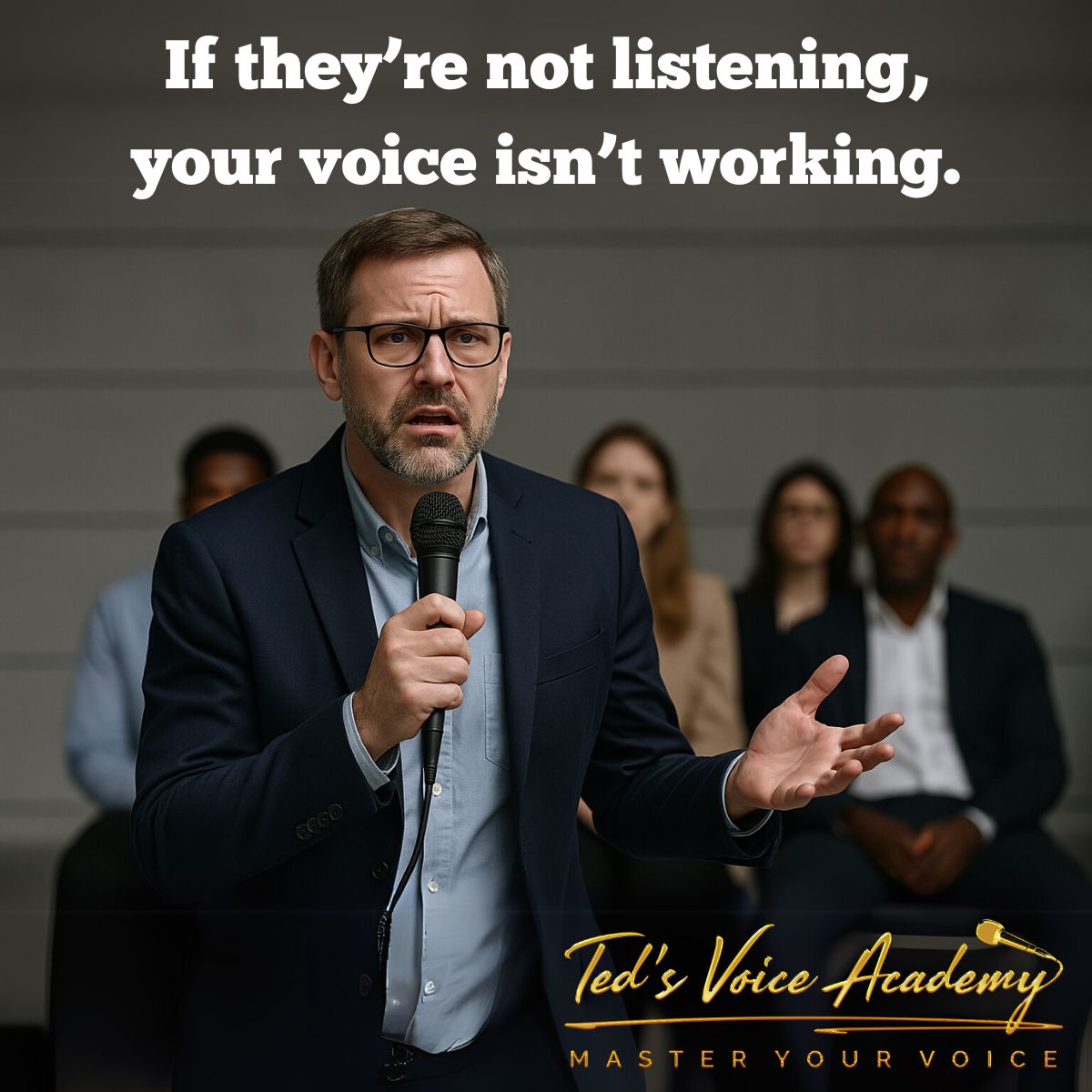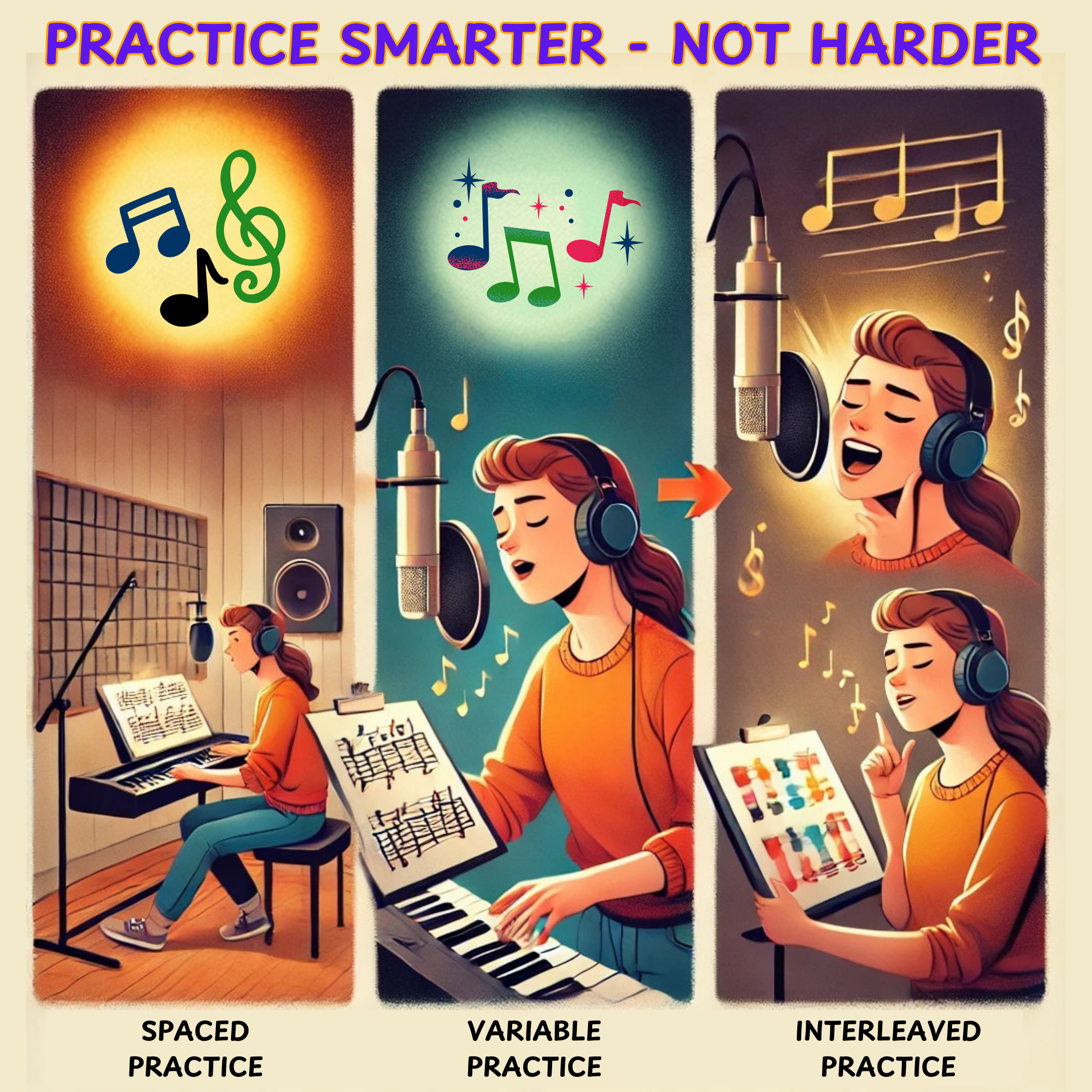Why Audiences Tune Out—and How to Make Sure They Don’t
Whether you’re commanding a stage as a speaker or captivating listeners as a singer, your voice is your greatest asset—or your biggest liability. Yet far too often, even talented individuals struggle to hold their audience’s attention.
So what causes people to tune out—even when the content is strong?
In this post, we’ll explore the top five reasons audiences disconnect from speakers and singers—and what you can do to keep your message front and center.
1. Lack of Emotional Connection
No amount of technical perfection can compensate for a missing sense of authenticity. Audiences instinctively respond to presence, vulnerability, and sincerity.
If your delivery feels rehearsed, robotic, or emotionally detached, your message may never make it past the first few seconds. Whether you’re singing a ballad or delivering a keynote, your audience needs to feel that you believe in what you’re saying or singing.
Voice coaching tip: Learn to access your emotional core and translate that into vocal nuance. A skilled coach can guide you through exercises that build expressive connection without overacting or forcing it.
2. Monotone or Lack of Vocal Variety
Flat delivery is a fast track to disengagement. Without vocal contrast—variations in pitch, pace, volume, rhythm, and tone—listeners mentally check out. The brain is wired to notice change. When everything sounds the same, nothing stands out.
Speaking or singing with intention means shaping phrases, highlighting key ideas, and creating moments of vocal surprise. These choices are rarely accidental—they’re strategic, and they’re coachable.
3. Poor Vocal Technique or Clarity
If your message isn’t audible or understandable, it doesn’t matter how brilliant it is. Weak projection, mumbling, nasal tone, or vocal strain can all make your message hard to follow—and hard to enjoy.
Listeners won’t struggle to hear you; they’ll simply stop trying.
A strong vocal foundation includes healthy breath support, clear diction, efficient resonance, and confident projection—all things that improve with the right guidance.
4. Mismatch Between Voice and Message
The tone of your voice must align with the meaning of your message. If your delivery feels “off”—too casual for a serious subject, too forced for a heartfelt lyric—listeners experience cognitive dissonance.
They may not know why they’re uncomfortable, but they’ll tune out just the same.
Authenticity isn’t just about content—it’s about congruence. The voice, the message, and the moment need to match. This level of alignment often requires objective feedback from someone trained to hear what you can’t.
5. Lack of Structure or Direction
Even the most engaging voices lose power if the message wanders. Without a clear arc or intention, your audience will lose interest.
For singers, this may look like vague storytelling or static phrasing. For speakers, it’s often rambling points with no discernible takeaway.
A skilled coach helps you shape the journey—clarifying your message, supporting your pacing, and guiding your interpretive decisions so they resonate from start to finish.
The Solution: Don’t Just Practice—Get Expert Coaching
If you’ve ever felt like your audience isn’t really hearing you, you’re not alone. But here’s the truth: You don’t have to figure it out on your own.
Working with a vocal coach who understands both performance psychology and voice science can elevate your impact in ways YouTube tutorials and self-practice never will. I specialize in helping professionals and performers alike find the voice that matches their message, delivering with clarity, confidence, and presence every time.
Ready to be heard—really heard?
Let’s work together to make your voice your most powerful asset.
Book a free introductory session today with a 4-lesson commitment and experience the difference expert coaching makes.
In-person and virtual coaching available.






Leave a Reply